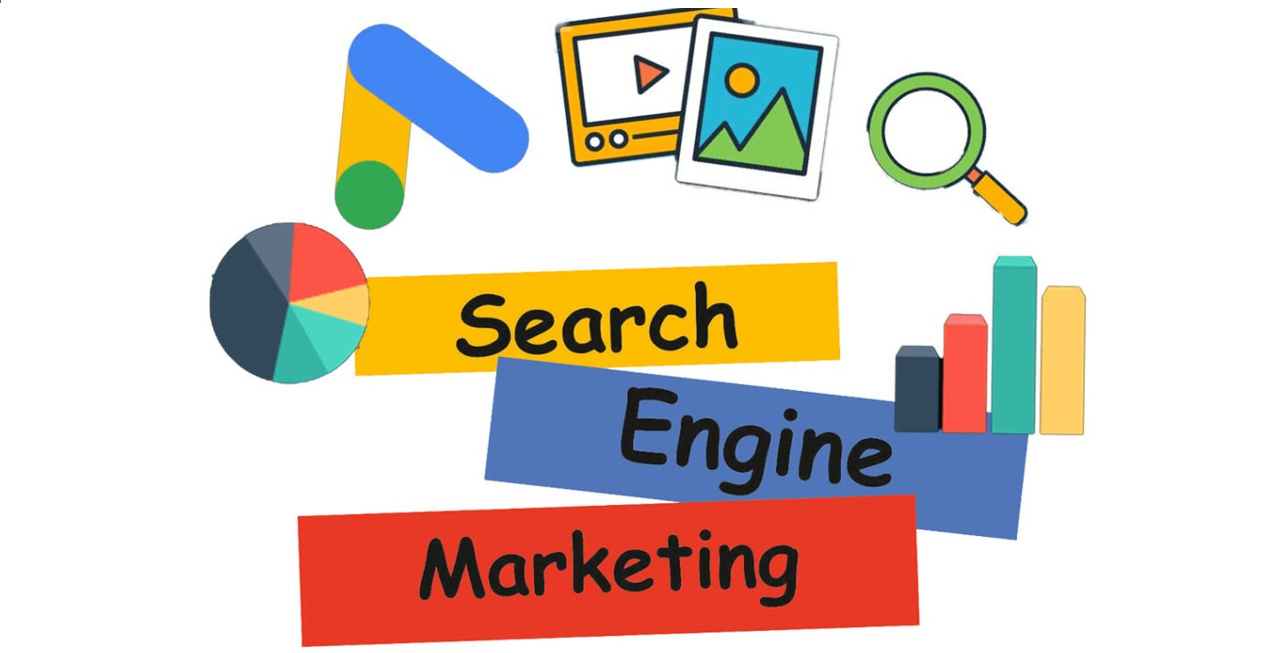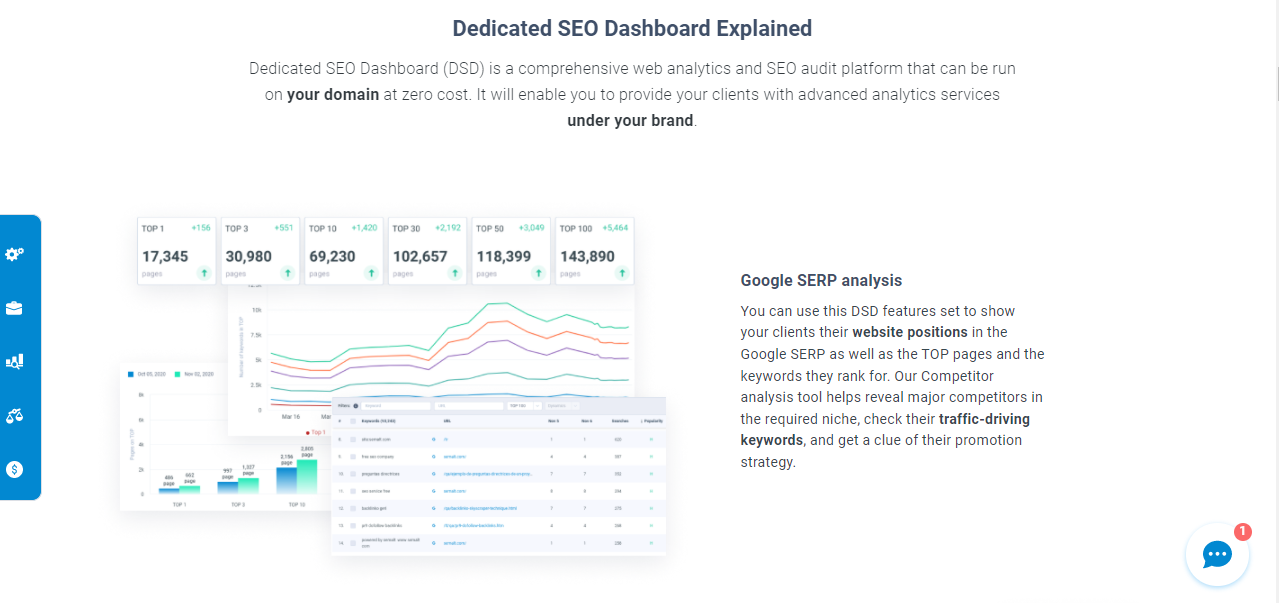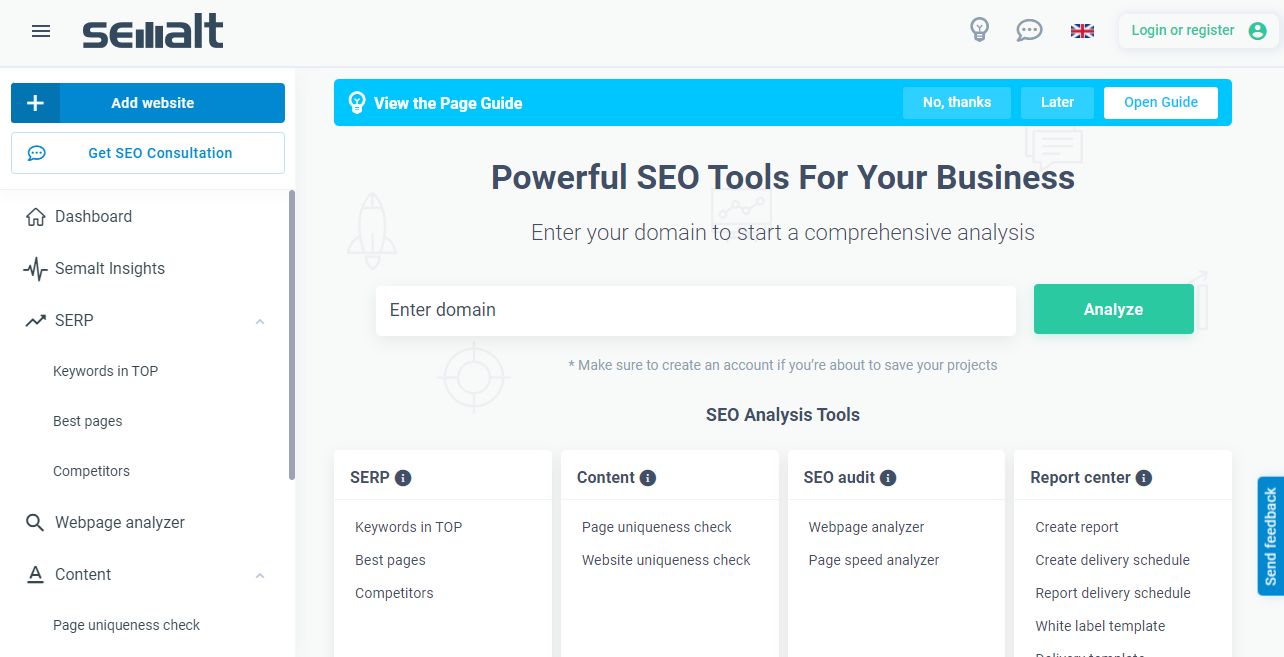6 Tips From Semalt To Get More Out Of Your Search Engine Marketing

Your website actually attracts very few visitors. And the visitors you have don't decide to fill out a form or use your services or make a purchase. That's Frustrating!
The reason why your website is still getting little business may be because it is not yet visible enough in the search engines. In this article, we tell you what search engine marketing is, which factors are important, why positioning is important as well as keyword research and content production.
1. Which factors are important for search engine marketing
Search engine marketing with the abbreviation SEM is the term we use for making websites and individual pages (landing pages) more findable in search engines such as Bing, Google, Yahoo. It makes sense: the better you can be found, the more visitors and potential customers you can expect. Most companies bet on unpaid search results. We also call these organic or natural search results.
A number of factors are important in search engine marketing. Not only the technology, but also the strategy and the content must be of high quality in order to score as well as possible in the search engines. Would you like to know how you are doing? Keep reading, you will realize what actions you need to take or what factors can help you further.
2. Your company's position in the market
- How is your company doing in the market in which you operate?
- Are you still a newcomer or starting to make a name for yourself?
- Do you have a lot of competition or little?
- Are your products and services classified as cheap or expensive?
- And do you have a good image?
By asking yourself these questions, you will find out what your market position is. This affects the potential customer's opinion of your company and which keywords you should be found with. It makes sense that search engine marketing is not only about the position in the market, but also the position in search engines. This involves looking at the result within a search engine.
3. On which page is your website located when certain search terms are searched?
The position of your company, both within the market and in the search engines, plays an important role in determining the image of your company. Websites that rank at the top of Google are often rated as more reliable. And let's face it: very few people click through to page 10 of a search term.
4. For whom do you ensure that you are found in search engines?
To see who you are in the search engines, it is good to know who your customers are and what they are looking for on Google. To find out who your ideal customer is (buyer persona), let's see below how to get this ideal customer.
"Research shows that the marketing strategy (inbound marketing) by investigating who the buyer personas are, on average, yields 124 per cent more return".

A buyer persona is therefore indispensable for marketers. It is a detailed and fictitious profile of a customer. You describe this character based on behavior and goals. So you determine what the customer is interested in and what motivates him/her to make a purchase or purchase a service.
With a buyer persona (ideal customer profile) you bring your target group to life. As a result, marketers better understand which human emotions and actions take place before a purchase takes place. In this way, appropriate content can be devised and a campaign can be set up. You formulate a character on the basis of questions such as:
- Which name suits your buyer persona?
- Where does he or she live?
- How old is your character?
- What interests does your buyer persona have?
- What education has the character received?
- What is his / her profession and what does his or her further career look like?
Marketers can take control of the customer experience. Here you ask yourself how the customer first comes into contact with your company and how they become a customer. Then you explain how this customer keeps returning. With this you identify the interaction moments, you gain insight into the needs of the customer and it becomes clear whether there are still opportunities for growth from the customer's perspective. Certain processes may need to be optimized so that the customer really comes first.
5. Getting Started with Keyword Research

There are many different tools available on the market to help you analyze your keywords. The simplest and most powerful one offered by Semalt is the Dedicated SEO Dashboard (DSD). This tool not only provides ready-made phrases, but also the estimated number of views per month. Thanks to this tool, we can know the keywords that our competitors are using in order to choose the right keywords faster and easier.

So, I invite you to read more details about this tool!
What does the SEO Dedicated Dashboard get you in terms of keyword research?
The most popular tool on the market today is the Dedicated SEO Dashboard. This is because it not only provides ready-made phrases, but also an estimated monthly number of searches.
The good news is that you don't need to have a paid subscription to do the keyword research. Access is free at first for 14 days, so you don't need to opt for a paid campaign.
By entering the phrase of interest in the DSD, we receive information about the average monthly number of searches, search trends, network traffic and suggested rate per click on the ad. The first result always relates directly to the word you typed. The next items in the list are similar phrases that have high ranking potential. With this tool, you can expand your existing keyword list. The keyword planner draws all information directly from the Google search engine databases.
The DSD can be searched in several ways: by words/phrases, by destination site/page, and by category. If you want to search for terms related to a product or service, click on the "keyword suggestions" tab. The search results will include information such as:
- List of related keywords, always the word/phrase we provide first
- Average monthly number of searches for a given word/phrase based on the parameters we choose - language, location, etc.
- Average monthly number of searches for a given word/phrase over the last 12 months in a graph.
- Information about the competitiveness of a given keyword in paid search results.
Important information provided by the Dedicated SEO Dashboard in terms of keyword research
There are useful parameters in the DSD with which you can customize the search results to your liking. The following options can be particularly useful:
- Language selection - we set the default language
- Location selection - by selecting the country of interest, the "average monthly number of searches" column will show data only for the selected country.
- Search network selection - we decide whether the statistical data should be displayed only for the Google browser or whether Google-dependent services, e.g. maps and independent portals, should also be taken into account.
- Period - By default, "Average monthly number of searches in the last 12 months" is set. Any other period can be selected.
The DSD is a very useful tool to get information about campaigns targeting keywords/phrases (keyword suggestions, popularity, cost, position, user trends, slogans that can be used for your own campaigns). The tool shows us general information about a given keyword. The traffic and cost forecasts show you the click-through rate metrics. The click-through estimate shows which terms are the most popular and could drive more traffic to our website.
6. Craft content for your customers and search engines
Now that you know who you are going to create content for and what these people are looking for, you can actually start creating content. This can be done in many ways. Of course, you can write and exchange (guest) blogs, but you can also make an interesting video or record a podcast. The podcast in particular is becoming increasingly popular. It is especially interesting for companies that want to share certain exclusive knowledge and establish themselves as an authority in a field of knowledge.
Content is the hub of search engine marketing. Good content connects to the target group, is relevant, and has a good structure. The content is easy to read and has the necessary keywords. Where it used to pay off to provide texts with many keywords, Google, for example, now pays attention to how readable the text is. The search engine reads your text as if it were a human. Blog actively, offer substantive content, and engage in discussion with your target audience. This builds authority with the target group.
Get found better in the search engines
Taking all these factors into consideration increases the likelihood of success. The most important tip is to keep it simple. There may be hundreds or thousands of tips on the web to improve your position in search engines. It is wise to address the most important factors first.
It goes without saying that the entrepreneur may not have the knowledge and time to really delve into search engine marketing. That's why it can be a good idea to have this done by Semalt.